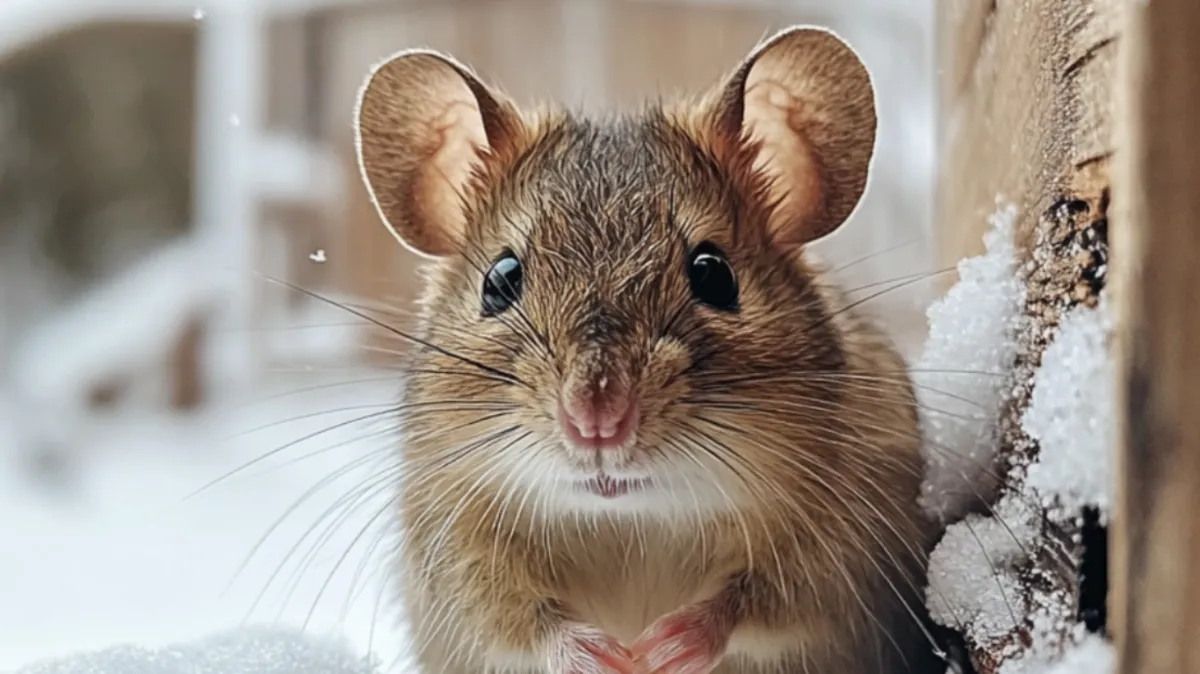
The Ottawa Pest Control Journal
Educational insights into how to keep your Ottawa home or business pest free

The Silent Invaders: Detecting and Dealing with Rodents in the Winter
Recognizing the Signs of Rodent Presence
Rodents are not just a nuisance but can pose significant health risks and cause structural damage to your home. Here are key indicators that rodents have made your home their winter retreat:
Droppings: Small, dark droppings, particularly in areas like the kitchen and basement, are a clear sign of rodent activity.
Sounds: Listen for scratching or scurrying noises in the walls or ceiling, especially at night when rodents are most active.
Gnaw Marks: Check for damage on furniture, food packaging, and wiring. Rodents need to constantly gnaw to keep their teeth sharp and short.
Nests: Look for nests made of shredded paper or other fibrous material in secluded areas like attics, basements, and behind appliances.
Effective Strategies for Rodent Control
Keeping your home rodent-free in winter requires a combination of preventative strategies and effective removal techniques. Here are some expert tips from Wayne’s Pest Extermination:
Seal Entry Points: Inspect your home for any cracks, holes, or gaps, especially where pipes and cables enter the building. Seal these entry points with steel wool or caulking to prevent rodents from entering.
Proper Food Storage: Store food in airtight containers and dispose of garbage regularly. Ensure that pet food is not left out overnight.
Declutter and Clean: Reduce clutter and maintain cleanliness to eliminate potential nesting sites. Regularly vacuum and clean areas prone to crumbs and food residue.
Traps and Baits: Setting traps or baits can effectively reduce rodent populations. Position them strategically where rodent activity is noticed, and always follow safety instructions to prevent harm to your family and pets.
Landscaping Tips to Deter Rodents
By strategically managing your outdoor space, you can minimize the risk of rodents taking up residence near your home.
Choose Rodent-Repelling Plants: Some plants are known for their natural ability to repel rodents due to their strong scents. Herbs such as mint, lavender, and garlic can help keep rodents at bay. Planting these around the perimeter of your home can act as a natural barrier.
Trim Back Vegetation: Overgrown vegetation provides perfect cover for rodents seeking shelter and nesting spots. It's essential to keep shrubs, bushes, and tree branches trimmed back from the exterior of your house. Ensure that branches don’t overhang onto your roof, offering easy access.
Manage Ground Cover: Thick ground covers, like ivy or juniper bushes, can provide excellent hiding spots for rodents. Consider replacing dense ground foliage with gravel or less dense options that don’t offer protection for rodents.
Position Plants Strategically: When planting new shrubs or trees, place them away from your home and other structures. This will discourage rodents from using plant pathways to explore potential entry points into your home.
Utilize Natural Mulches: Certain types of mulch, such as cedar or cypress bark, are less appealing to rodents due to their scent and texture. Choosing the right mulch can reduce nesting opportunities in your garden beds.
Pet Safety and Rodent Baits
Here are essential tips and recommendations to ensure the safety of all family members while dealing with rodent infestations:
Choose Pet-Safe Products: Opt for rodent control options specifically designed to be safe around pets. These products typically include bait stations that are tamper-resistant and can only be opened with a key, preventing pets and children from accessing the toxins inside.
Strategic Placement: Place baits and traps in areas that are less accessible to pets and children, such as behind appliances, in attics, or in basements locked away from family activity. Always follow the manufacturer's guidelines on placement to maximize safety and effectiveness.
Non-Toxic Alternatives: Consider using non-toxic traps, such as snap traps or live traps, which do not contain harmful chemicals. These traps can effectively capture rodents without the risk of poisoning pets if they are accidentally triggered.
Monitor Frequently: Check traps regularly to remove captured rodents promptly and to ensure traps and baits have not been disturbed or moved. Regular monitoring also prevents pets from being curious about the smells or the captured rodents.
Educate Your Household: Make sure all family members, including older children, understand the importance of not tampering with bait stations and traps. Education can be a powerful tool in preventing accidental exposure.
Consult a Professional: If unsure about the safety and placement of rodent control measures, it’s advisable to consult with a pest management professional. They can offer tailored solutions that consider both the effectiveness of rodent control and the safety of your pets and family.
Professional Rodent Control Services
Sometimes, DIY methods are not enough to manage a full-blown rodent infestation. Wayne’s Pest Extermination offers professional rodent control services that include:
Comprehensive Inspections: Identifying the extent of the infestation and the specific types of rodents present.
Customized Treatment Plans: Implementing targeted strategies to eliminate rodents based on the specific needs of your home.
Follow-Up Inspections: Ensuring rodents are completely eradicated and providing preventive advice to keep your home pest-free.
Why Winter Rodent Control is Crucial
Ignoring rodent problems in the winter can lead to severe infestations that are harder to control as the weather warms. Rodents can carry diseases such as Hantavirus and Salmonella, which pose health risks to humans and pets. Additionally, rodents can cause significant damage to your home by gnawing on wires, which can lead to electrical fires, and deteriorating the structural integrity of your home.
As you prepare for the winter months, remember that preventing and addressing rodent infestations is key to enjoying a safe and comfortable season. For more information or to schedule a consultation, visit Wayne’s Pest Extermination's or contact our expert team directly. Let us help you ensure that the only guests you have this winter are the ones you invite.

Schedule a Pest Inspection
Ready to schedule a pest inspection? Contact us today.
